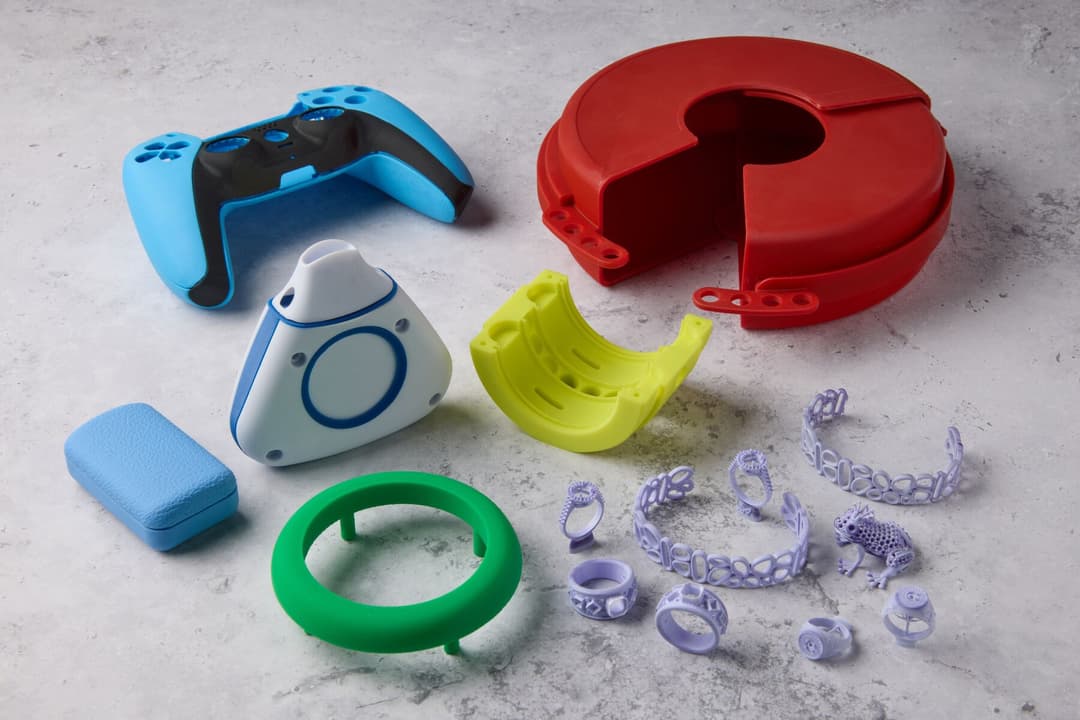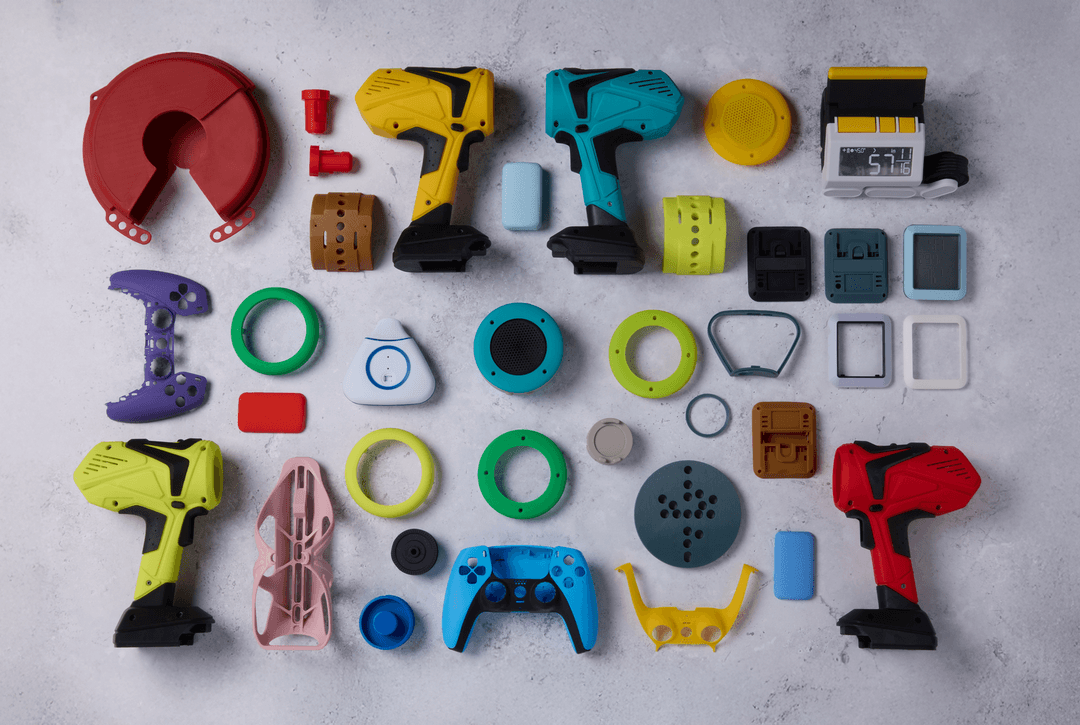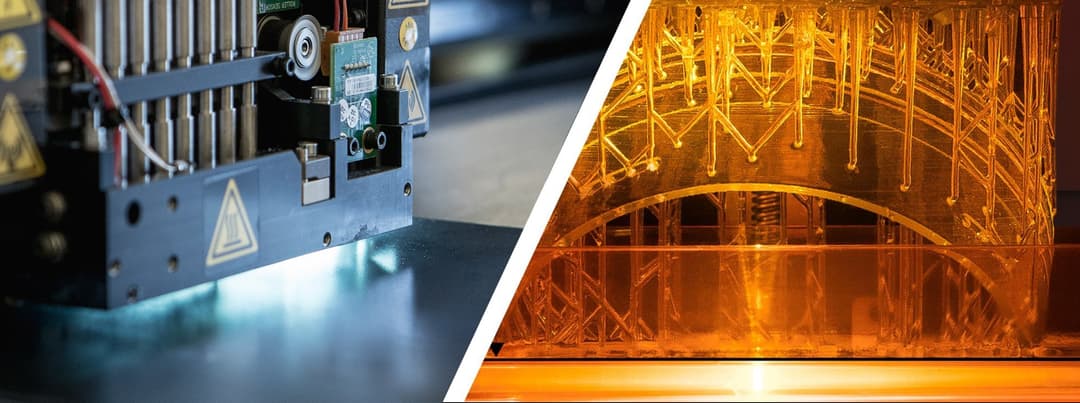Post-processing parts is a crucial step in the stereolithography (SLA) 3D printing workflow. Rinsing, washing, and curing allows you to produce highly functional, detailed parts and finish your parts effectively. For the detailed workflow, read our guide to post-processing resin 3D printed parts.
In general, IPA is our recommended post-processing solvent for cleaning resin prints. However, your facility may be unable to use IPA due to flammability concerns or local restrictions. For these cases, other solvents and solutions are available, including Formlabs Resin Washing Solution.
For post-processing resin 3D parts, we recommend Form Wash and Form Cure for desktop resin printers, and Form Wash L and Form Cure L for large-format SLA printers to automate and simplify your post-processing. Form Wash and Form Wash L automate the print washing process for consistent, thorough, no-mess cleaning, while Form Cure and Form Cure L precisely combine heat and 405 nm light to consistently post-cure prints.
When handling wash solvents, always consult the safety data sheet (SDS) from the supplier as the primary source of information and ensure appropriate ventilation when handling.
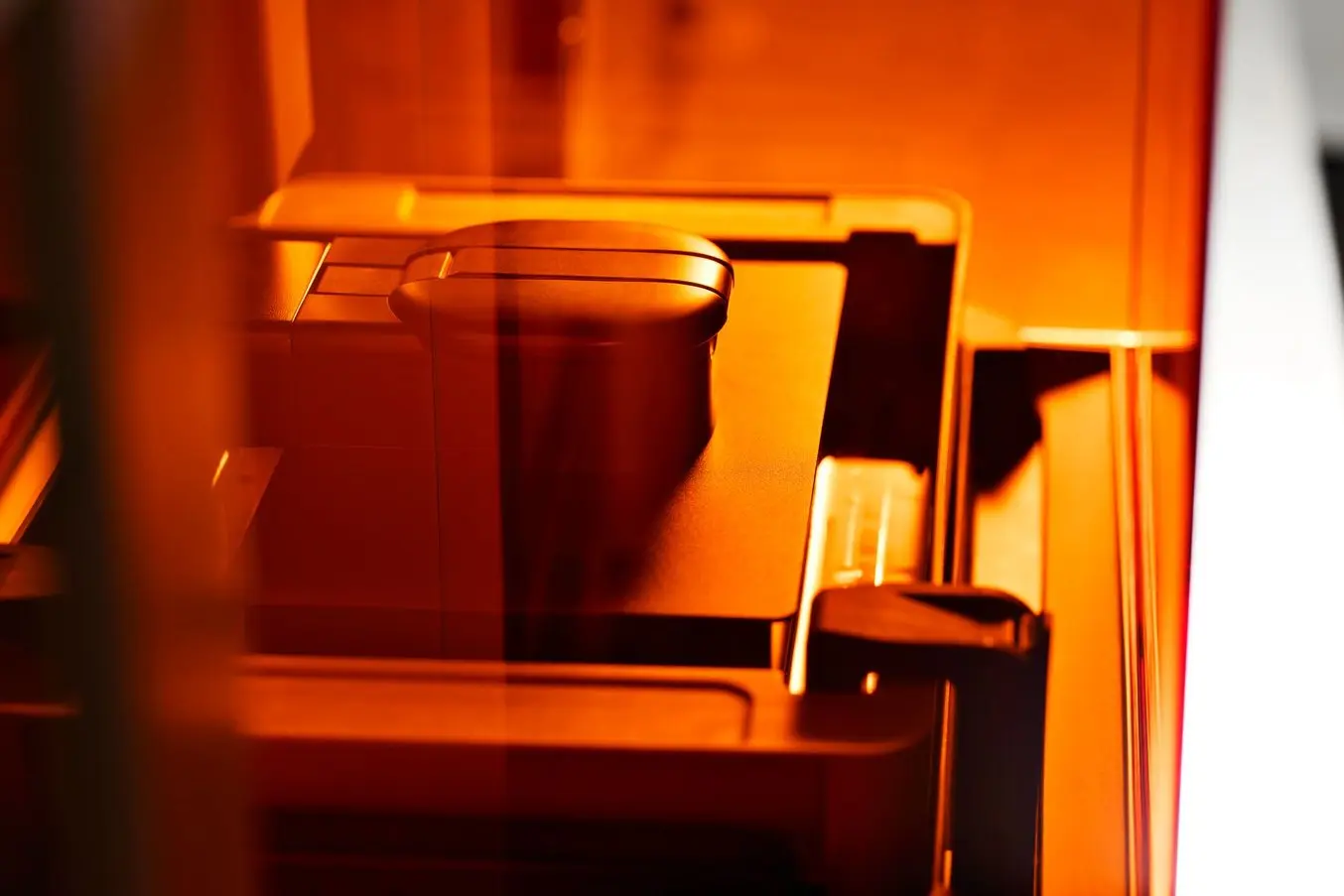
Product Demo: Form 4
See how Form 4 can enable new levels of productivity and innovation through its unmatched speed, accuracy, and reliability.
Washing SLA Resin 3D Printed Parts
Resin 3D printed parts must be washed to remove excess resin from the surface. Failing to properly wash parts will leave the parts sticky and unseemly, so post-processing is vital to successful 3D printing.
Washing Resin 3D Printed Parts Tips:
- Formlabs recommends washing SLA parts with isopropyl alcohol (IPA), Resin Washing Solution, or tripropylene glycol monomethyl ether (TPM). Most users find IPA is most effective for washing parts. Note that IPA solutions can often only be purchased in large quantities, so you should be prepared to store excess IPA for future use, whereas Resin Washing Solution can be purchased in quantities of five liters.
- Parts should be moved around in the solvent as well as soaked for optimal cleaning. Both Form Wash and Form Wash L agitate the solvent or solution to thoroughly clean parts.
- Parts should be washed before removing supports.
- When creating designs with narrow channels, such as microfluidics, a syringe may be necessary to clean our internal resin and stop resin from curing and blocking channels.
- Some parts may require two washes in IPA, Resin Washing Solution, or TPM to be fully clean. Before finishing, we recommend washing in water. For each part, you should use your own judgement whether the part is fully cleaned.
Formlabs recommends Form Wash for desktop printers, and Form Wash L for large-format printers to automate washing and rinsing your printed parts.
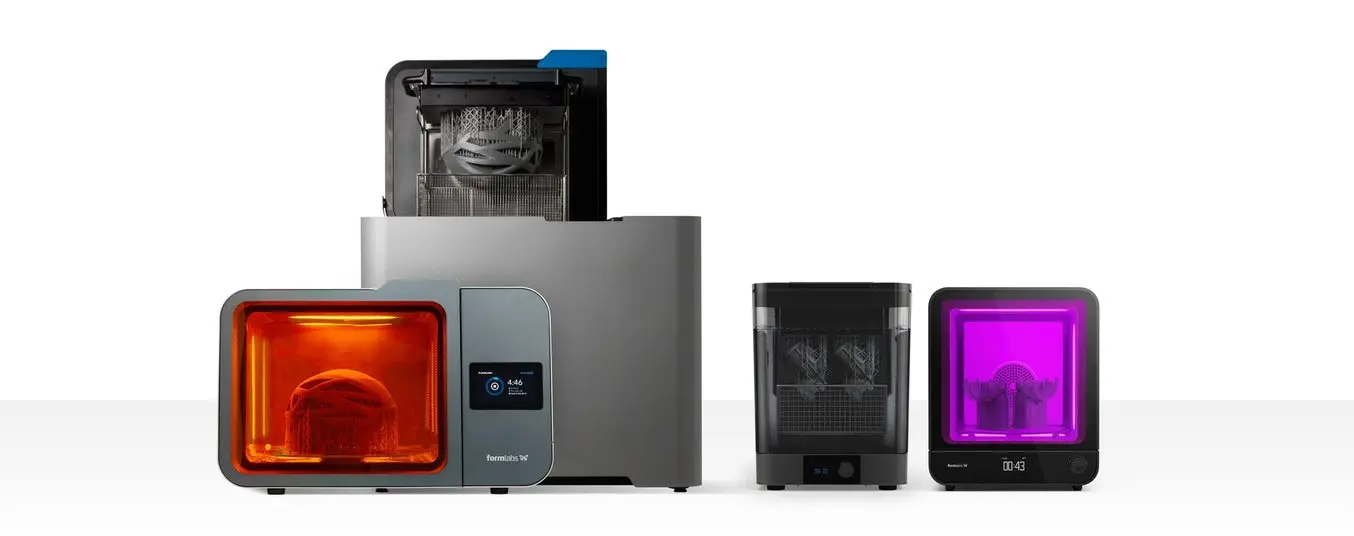
Formlabs' post-processing solutions simplify and automate post-processing so you can consistently produce quality results and maintain a tidy workspace with less time and effort.
Methods to Extend the Lifetime of Your IPA
Formlabs generally recommends IPA with a concentration of 90% or higher. If you have access to IPA, there are a few things you can do to prolong its usability. First, you’ll want to thoroughly wipe off any excess resin from the part and build platform before submerging them in IPA.
When post-curing the parts in the Form Cure, you can also submerge small parts in a bath of clean water, glycerin, or mineral oil inside of a glass Pyrex container. The water, glycerin, or mineral oil helps exclude oxygen from the surface of your printed part as you post cure, resulting in a tack-free well-cured surface. If your wash IPA is dirty, this step will help minimize residual resin left on the surface of your print by ensuring it is fully cured.
If you’re printing with biocompatible resins, you’ll need to closely follow wash recommendations to ensure biocompatibility of the material. For more detailed information about washing your prints, continue reading on our support site to learn more about rinsing stages, best practices for different part geometries, and more.
Resin Washing Solution
Odor and flammability can be concerns when washing with IPA. Formlabs Resin Washing Solution solves these pain points. It is lower-odor and non-flammable per GHS classification, mitigating storage and environmental health and safety concerns. It cleans as well as isopropyl alcohol (IPA), and can dissolve twice as much resin before becoming saturated, for a lower cost per wash. Compared to TPM, Resin Washing Solution is also less expensive. Note that Resin Washing Solution is not yet certified for use with Formlabs products in biocompatible applications.
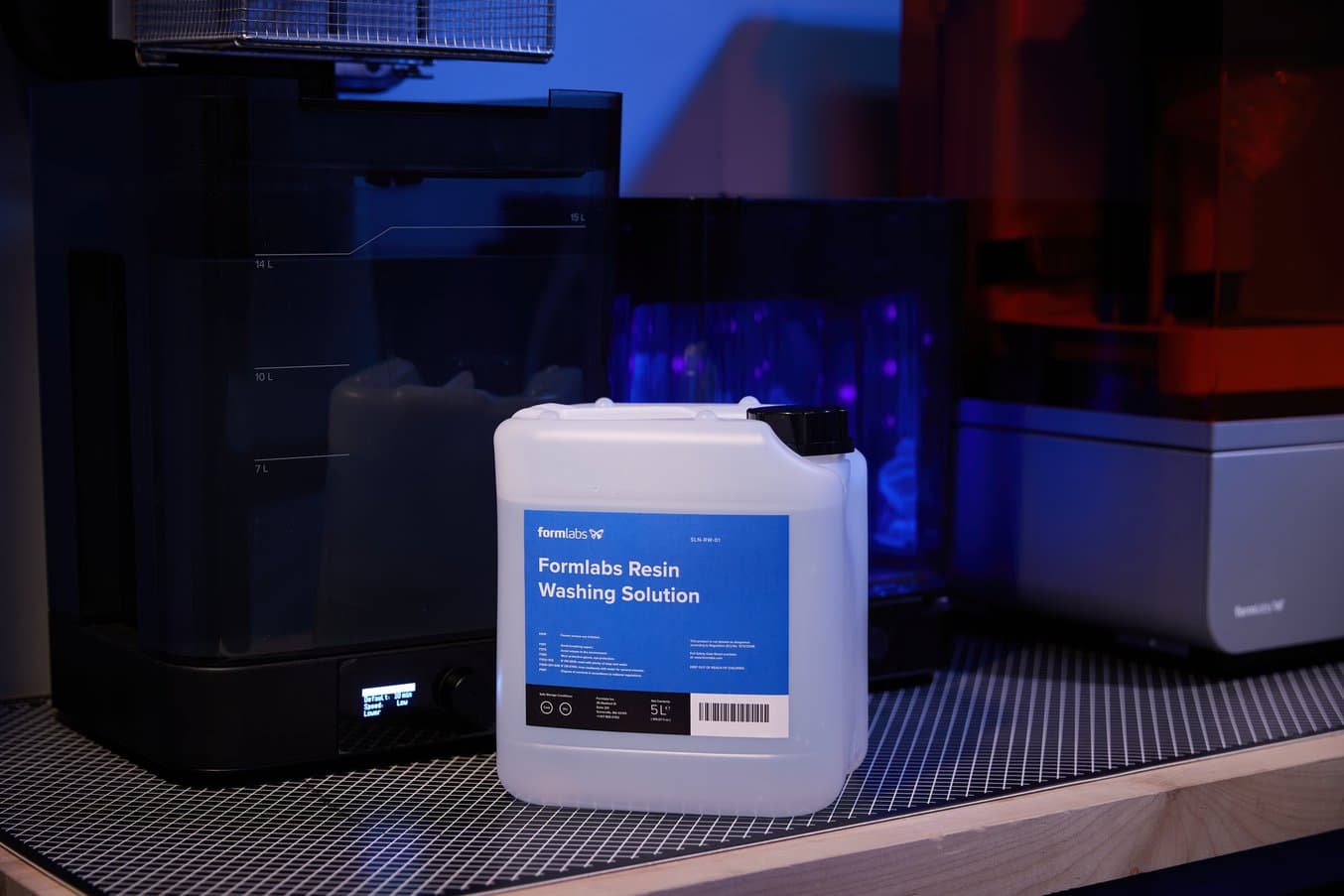
Compare Solvents for Cleaning Resin Prints
| Solution | Fully non-flammable workflow | Cost per liter | Saturation limit | Solution amount lost to evaporation* | Solution lifetime* (days) | Cost per wash |
|---|---|---|---|---|---|---|
| IPA | No | $7.67 | 10% | 1.18 L | 97 | $1.08 |
| Formlabs Resin Washing Solution | Yes | $15.00 | 20% | ~0 L | 240 | $0.91 |
| Non-Flammable Competitor | Yes | $28.00 | 20% | ~0 L | 240 | $1.69 |
| Competitor High-Saturation Limit Solution | No - requires secondary flammable solvent | $52.50** | 35% | ~0 L | 420 | $1.81 |
*Assuming one print per day
**Secondary flammable solvent is factored into cost
Tripropylene Glycol Monomethyl Ether (TPM)
In case you cannot acquire IPA, tripropylene glycol monomethyl ether (TPM) is a tested alternative for parts printed with non-biocompatible Formlabs resins. TPM is a non-flammable, low odor solvent, making it effective for washing parts printed on Formlabs SLA printers using Form Wash, Form Wash L, or Finish Kit.
If you’re interested in acquiring TPM for your workflow, we recommend this list of approved vendors:
- J R Hess Company - TPM is available in 5 gallon pails. Please contact by calling 1-800-828-4377 ext 115.
- UNIVAR USA - TPM is available with a $500 minimum. Please contact by calling their Sales & Customer Service U.S. Toll Free number: 1-800-531-7106.
- BRENNTAG - Please contact by calling 1-610-926-6100.
As always, feel free to contact the Formlabs sales and services team for further recommendations. To learn more about integrating TPM into your workflow and special disposal requirements, please continue reading on our support site.
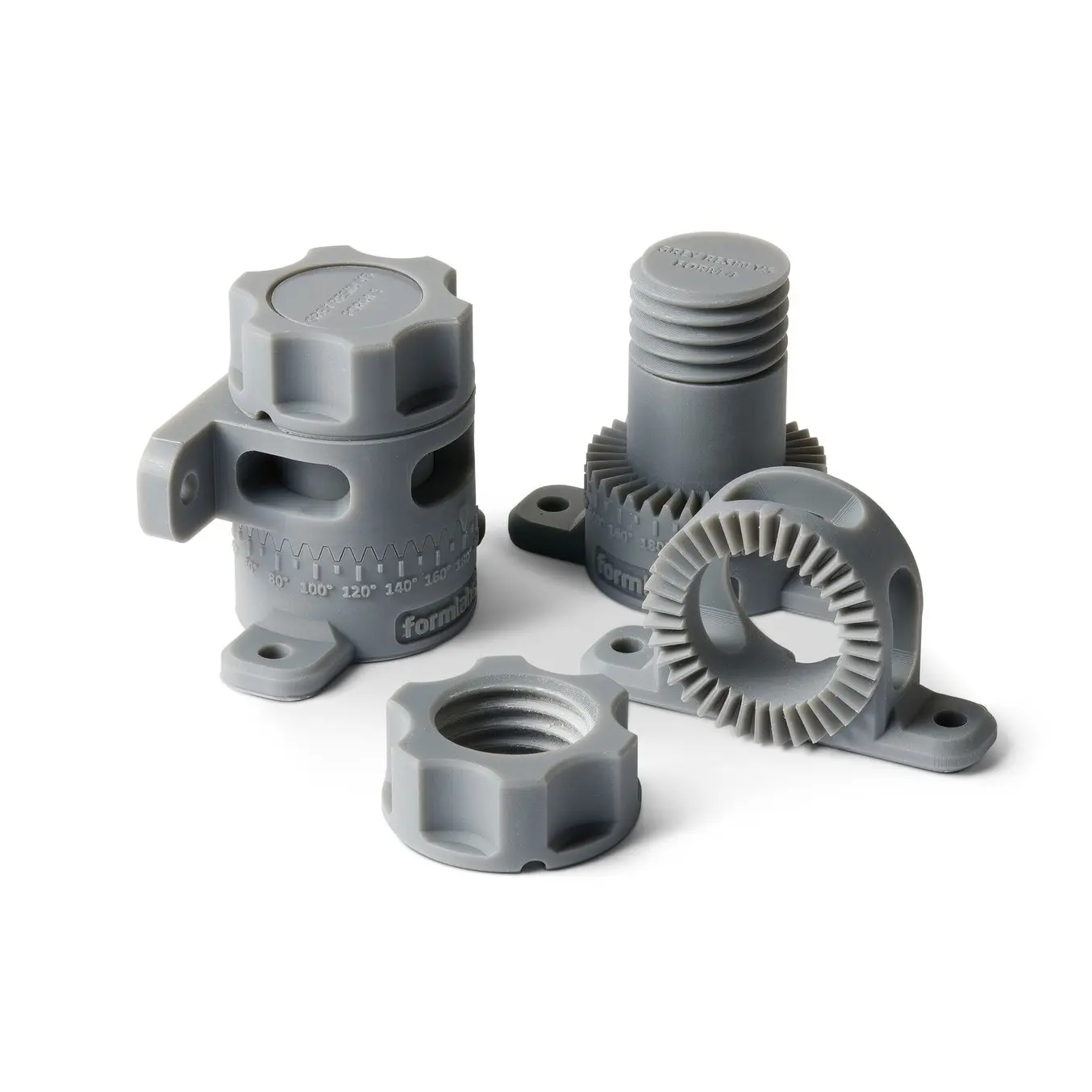
Request a Free Sample Part
See and feel Formlabs quality firsthand. We’ll ship a free 3D printed sample part to your office.
Other Solvents and Resin Cleaning Solutions
Formlabs does not officially recommend any of the following, but some customers have shared with us their experience using other solvents. Customers looking for IPA alternatives for resin printing can test these at their own risk to see if they may work for their use case:
- Poly-Flush SLA 3D Printing Cleaning Solvent - Is less volatile but more expensive than IPA.
- Yellow Magic Water Based Ink Cleaner - Is less volatile than IPA and may require an ultrasonic bath to clean parts more effectively.
- MeanGreen Cleaner - May require an ultrasonic bath to clean parts more effectively.
- Propylene Carbonate - Is less volatile and requires more agitation than IPA.
- Dipropylene glycol monomethyl ether (DPM) - While this is another wash solvent used widely in industrial 3D printing, Formlabs recommends TPM as a better, safer alternative.
As always, all solvents and resins should be disposed of in accordance with your local regulations and supplier’s SDS. Water and solvents contaminated with alcohol and liquid resin should never be poured down your sink drain. Read our support article for more information on proper resin disposal.
